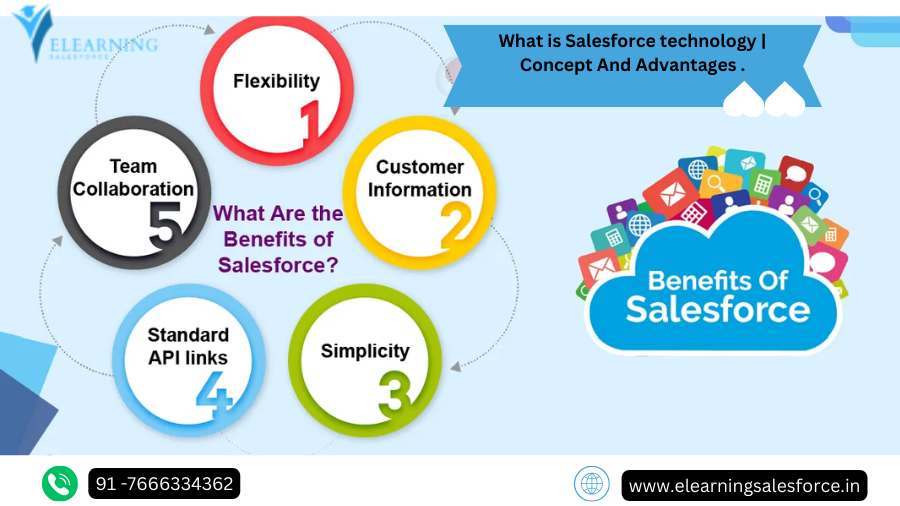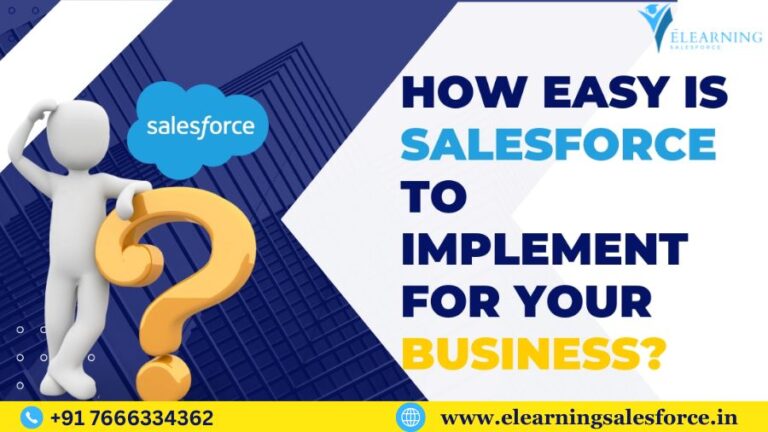Demystifying What is Salesforce technology? for savvy businesses! Explore its concept, capabilities, advantages, & implementation considerations.
Feeling Frustrated? Drowning in Data Silos and Customer Woes?
Salesforce Technology Could Be Your Lifesaver.
Imagine this: customers slipping through the cracks, sales leads gathering dust, and valuable data scattered across isolated islands. The frustration of managing a business in today’s complex landscape can be overwhelming. But what if there was a single, cloud-based solution that could streamline operations, boost sales, and transform your customer relationships? Enter Salesforce technology, the CRM powerhouse poised to revolutionize your business journey.
Whether you’re a small startup or a global enterprise, Salesforce technology offers a customizable, scalable platform designed to meet your unique needs. Gone are the days of fragmented data and inefficient processes. This innovative solution acts as your central nervous system, seamlessly connecting sales, marketing, customer service, and analytics to give you a 360-degree view of your business and your customers.
So, ditch the frustration and step into a world of enhanced productivity, data-driven decisions, and empowered customers. Join us on this deep dive into Salesforce technology, where we’ll unveil its core concepts, uncover its powerful functionalities, and explore how it can propel your business to new heights. Dive in, and discover how this industry leader can become your key to unlocking business success.
Unveiling the Magic: Core Concepts and Functionalities of Salesforce Technology
Remember the chaotic mess we depicted in the introduction? Well, fret no more! Here’s where we peel back the layers of Salesforce technology and expose its core functionalities, designed to bring order and efficiency to your business world.
1. Cloud-Based Architecture: Your Data Is Always in the Sky (and Securely There!)
Gone are the days of bulky, on-premise software installations. Salesforce embraces the power of the cloud, offering a secure and scalable platform accessible from anywhere, anytime. This translates to several benefits:
- No more IT headaches: Ditch the burden of hardware maintenance and software updates. Salesforce takes care of everything, ensuring your platform is always up-to-date and secure.
- Instant scalability: As your business grows, your CRM grows with you. Easily add users, storage, and functionality without complex upgrades or downtime.
- Global accessibility: Your team can access vital data and collaborate seamlessly, regardless of location. Say goodbye to geographical limitations and hello to a truly connected workforce.
2. CRM Capabilities: From Leads to Loyal Customers, a Seamless Journey
At its core, Salesforce is a Customer Relationship Management (CRM) platform, meaning it excels at managing all aspects of your customer interactions. Imagine:
- Centralized data hub: Ditch scattered spreadsheets and fragmented information. Salesforce stores all your customer data – contacts, interactions, preferences – in one easily accessible location.
- Sales automation superpowers: Streamline your sales pipeline with automated tasks, lead scoring, and opportunity tracking. Close deals faster and convert more leads into loyal customers.
- Customer service magic: Delight your customers with personalized support across multiple channels (phone, email, chat). Resolve issues quickly and efficiently, fostering positive relationships that drive loyalty.
3. Einstein AI: Unleashing the Power of Intelligence
Salesforce doesn’t stop at basic CRM. It infuses cutting-edge Artificial Intelligence (AI) through its Einstein suite, empowering you to make smarter decisions and optimize your operations:
- Predictive insights: Forecast sales trends, anticipate customer churn, and identify potential issues before they arise. Gain a crystal-ball view of your business and make proactive decisions.
- Personalized automation: Automate repetitive tasks based on AI-driven insights, freeing up your team to focus on strategic initiatives. Imagine automatically qualifying leads, routing tickets, and suggesting support solutions.
- Data-driven marketing: Craft targeted campaigns based on customer behavior and preferences. Einstein helps you send the right message to the right person at the right time, boosting engagement and conversions.
4. Lightning Platform: Customize Your CRM, Your Way
Salesforce understands that every business is unique. That’s why it offers the Lightning Platform, a powerful tool for customizing your CRM to fit your specific needs:
- Build custom apps: Extend Salesforce’s functionality with tailor-made apps for industry-specific processes, unique workflows, or even internal tools.
- Integrate with existing systems: Break down data silos and connect Salesforce with your existing software for a seamless flow of information.
- Unleash your inner developer: Even without coding expertise, you can leverage pre-built components and drag-and-drop functionality to personalize your CRM experience.
Industry-Specific Solutions within Salesforce Technology
Remember the frustration of feeling like your CRM doesn’t quite understand your unique industry challenges? Salesforce technology tackles this head-on by offering industry-specific solutions designed to address the specific needs and workflows of various sectors. what technology does salesforce use, what is salesforce and why it is used, salesforce is a technology, which technology is used in salesforce etc.
These solutions go beyond simple relabeling; they’re built with pre-configured features, industry-specific data models, and tailored user interfaces to seamlessly integrate into your existing business ecosystem.
1. Healthcare: Streamline patient care, manage clinical trials, and boost operational efficiency with solutions for hospitals, clinics, and pharmaceutical companies. Imagine:
- Enhanced patient engagement: Foster communication and empower patients with self-service portals for appointments, medication management, and health data access.
- Clinical trial management: Simplify enrollment, track data effectively, and ensure regulatory compliance with dedicated tools.
- Improved revenue cycle management: Streamline billing and claims processing, reduce administrative burdens, and maximize revenue recovery.
2. Financial Services: Navigate complex regulations, personalize customer experiences, and drive growth with solutions for banks, insurance companies, and wealth management firms. Envision:
- Compliance automation: Simplify adherence to KYC/AML regulations and streamline reporting processes.
- Personalized financial advice: Leverage AI-powered tools to deliver tailored recommendations and investment strategies to clients.
- Frictionless account opening and onboarding: Enhance customer experience with streamlined digital processes and faster account activation.
3. Manufacturing: Optimize production, manage supply chains, and improve customer satisfaction with solutions for manufacturers and distributors. Picture:
- Real-time inventory visibility: Track materials, monitor production lines, and predict potential stockouts for proactive inventory management.
- Connected supply chain: Collaborate seamlessly with suppliers and partners, optimizing logistics and ensuring on-time delivery.
- Predictive maintenance: Identify potential equipment issues before they occur, minimizing downtime and maximizing production efficiency.
These are just a few examples. Salesforce offers industry-specific solutions for various sectors, including retail, media & entertainment, non-profit, and more. Each solution is backed by real-world case studies and success stories from industry leaders like Apple, Amazon, and Starbucks, showcasing the tangible impact of Salesforce technology in transforming businesses across diverse industries.
Navigating the Journey: Implementation Considerations for Salesforce Technology
So you’re convinced Salesforce technology holds the key to unlocking your business potential. But transitioning to a new platform can seem daunting. Worry not! In this section, we’ll demystify the implementation process, guiding you through crucial considerations to ensure a smooth and successful journey.
1. Cost & Pricing: Finding the Right Fit for Your Budget
Salesforce offers various pricing models to cater to different business needs and sizes. Here’s the breakdown:
- Edition-based pricing: Choose from different editions (Essentials, Professional, Enterprise, Unlimited) with varying functionalities and user capacities. Consider your current needs and future growth potential when selecting an edition.
- Per-user pricing: Each user accessing the platform incurs a monthly fee. Carefully assess your user base and potential future expansion to estimate costs accurately.
- Additional considerations: Factor in potential app purchases, customization costs, and consulting fees for implementation support. Remember, the price tag shouldn’t solely drive your decision; the value proposition and ROI should be the ultimate deciding factors.
2. Security & Compliance: Protecting Your Data, Earning Trust
Salesforce technology prioritizes security and boasts numerous compliance certifications. Still, it’s essential to understand your own security needs and how the platform aligns:
- Data encryption: Ensure your data is securely encrypted at rest and in transit. Understand Salesforce’s encryption protocols and implement additional safeguards if needed.
- User access controls: Define granular access levels for different user groups within your organization to ensure data privacy and security.
- Compliance requirements: If your industry has specific compliance regulations, verify that Salesforce meets those requirements. Consult with security experts to navigate compliance complexities.
3. Data Migration & Integration: Seamlessly Connecting the Pieces
Moving your existing data to Salesforce and integrating it with other systems is crucial for a smooth transition. Here’s what to consider:
- Data cleansing and standardization: Prepare your data by cleaning inconsistencies and ensuring consistent formatting for seamless migration.
- Migration tools and expertise: Leverage Salesforce’s data migration tools or engage expert partners to ensure a smooth and efficient data transfer.
- System integration: Identify other systems you need to integrate with Salesforce (e.g., marketing automation, accounting software) and explore available integration options.
4. Change Management: Preparing Your Team for Success
Change can be challenging, but effective change management strategies are crucial for user adoption and platform success. Here are some key steps:
- Communication and training: Communicate the benefits of Salesforce clearly and provide comprehensive training to all users. Address concerns and ensure they understand the new workflows.
- Executive sponsorship: Gain buy-in from leadership to champion the change and encourage user participation.
- Ongoing support: Offer ongoing support channels and resources to help users navigate the platform and answer their questions.
By carefully considering these implementation factors, you can ensure a smooth and successful transition to Salesforce technology, paving the way for a more efficient, data-driven, and customer-centric future for your business. Remember, a well-planned and executed implementation is key to maximizing the value proposition of this powerful platform.
Conclusion
The Power in Your Hands: Take the First Step Towards Transformation with Salesforce Technology
Remember the frustration at the beginning? Drowning in data silos, struggling with customer relationships, and yearning for a smoother, more efficient way to operate? Salesforce technology presents a powerful antidote, offering a cloud-based, customizable CRM platform designed to streamline operations, boost sales, and transform your customer relationships.
We’ve explored its core functionalities, from centralized data management and intelligent automation to industry-specific solutions and seamless app integrations. We’ve navigated the implementation considerations, addressing concerns about cost, security, data migration, and change management.
But remember, knowledge is power only when put into action. Don’t let this valuable information sit idle. Take the first step towards a brighter future for your business:
- Explore Salesforce products and solutions: Visit the Salesforce website and browse the various offerings tailored to your industry and needs.
- Contact a Salesforce expert: Schedule a consultation to discuss your specific challenges and goals, and explore how Salesforce can be customized to fit your unique business landscape.
- Start your free trial: Experience the power of Salesforce firsthand with a free trial, getting a taste of its functionalities and potential impact.
As you embark on this journey, remember: transformation takes time and commitment. Embrace the change, empower your team, and leverage the wealth of resources available from Salesforce and its community. With the right planning, execution, and a willingness to learn, Salesforce technology can become the catalyst that propels your business to new heights.
So, ditch the frustration and embrace the future. It’s time to unlock the power of innovation, data-driven decisions, and empowered customers. Salesforce technology awaits. Are you ready to take the leap?
you may be interested in blogs:-


